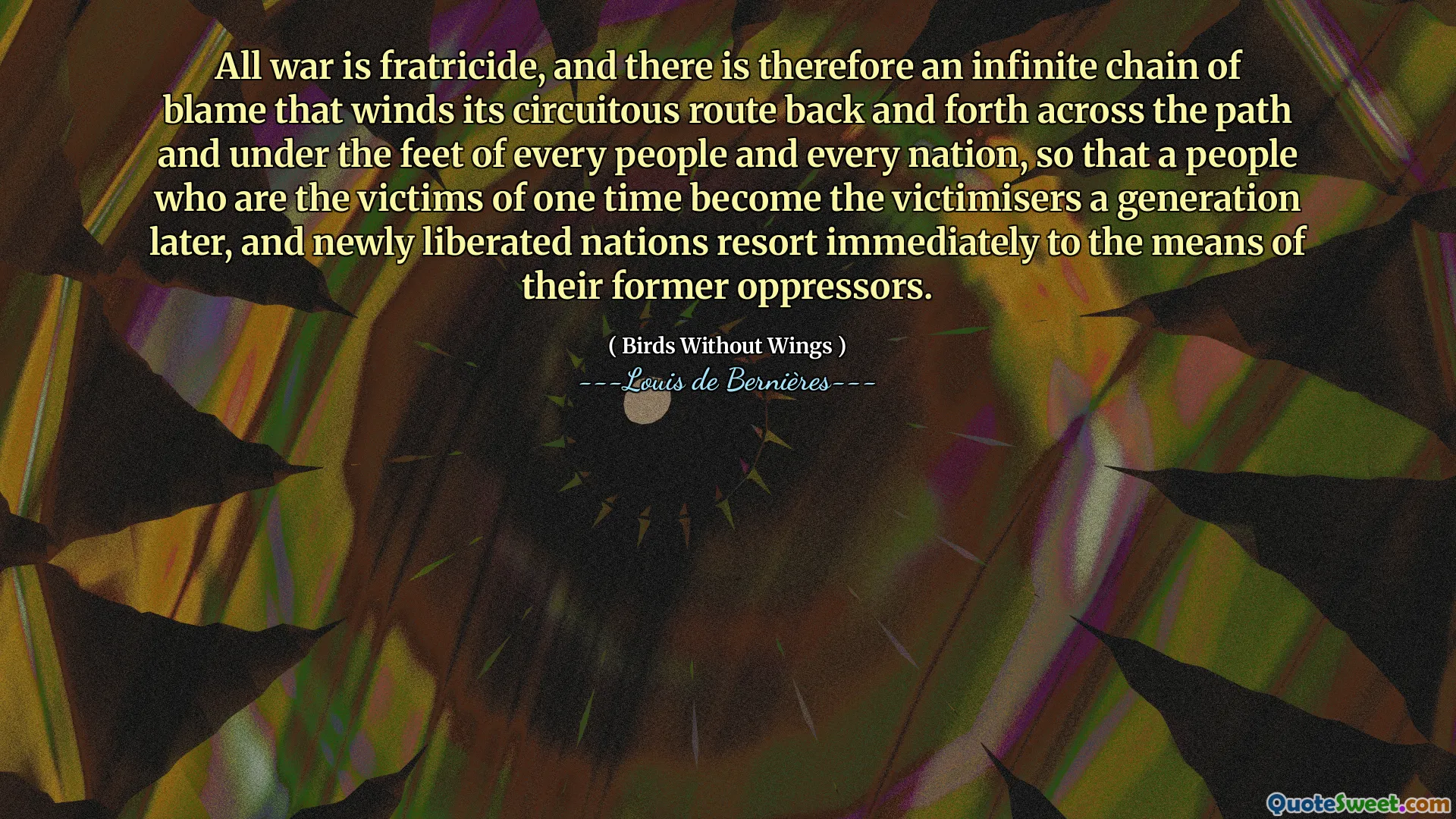
All war is fratricide, and there is therefore an infinite chain of blame that winds its circuitous route back and forth across the path and under the feet of every people and every nation, so that a people who are the victims of one time become the victimisers a generation later, and newly liberated nations resort immediately to the means of their former oppressors.
This quote profoundly captures the tragic cyclicality inherent in human conflict. Describing war as 'fratricide' immediately invokes the image of brothers fighting each other, a metaphor underscoring how war is essentially a self-destructive act among humanity. It implies that wars are not just conflicts between strangers or distant enemies but an intimate and painful rupture of shared humanity.
The notion of an "infinite chain of blame" evokes how history is seldom a linear story of good versus evil; it is a complex web of actions and reactions, repeating patterns where the oppressed may eventually turn into oppressors. This cyclical nature of violence highlights a broader truth about power and grievance: one generation's victims become the next generation's perpetrators. It forces us to consider the deep root causes of conflict, often embedded in trauma and injustice passed down through time.
Furthermore, the reference to "newly liberated nations" adopting the methods of their former oppressors points to a disappointing recurrence of oppression and violence even after emancipation. It suggests that liberation without transformation or healing may only replace one form of tyranny with another. This highlights the urgent need for societies to break free not only from external domination but from the internalized legacies of violence and retribution.
In the context of Louis de Bernières’ Birds Without Wings, this perspective invites readers to reflect on the personal and collective consequences of war on communities and human relationships. Ultimately, the quote serves as a serious caution about the price of cyclical vengeance and stresses the importance of empathy, reconciliation, and conscious efforts to break the cycle of violence.






